
















THE BEE CHAMBER, YOUR PARTNER FOR GOOD CORPORATE CITIZENSHIP,
DRIVING ECONOMIC TRANSFORMATION & POVERTY ALLEVIATION.

The BEE Chamber is not a traditional consultancy.
We’re your B-BBEE consulting partner. We aim to enable businesses in implementing South Africa’s diversity and equality policies. The BEE Chamber’s dedicated services focuses on the support and development of B-BBEE Practitioners, internal capacity building and the development of your B-BBEE best practices to a level of excellence.
Enabling B-BBEE Practitioners to expand their horizons and skill sets are at the core of what we do. Economic transformation can only happen due to organisational transformation, and organisational transformation can only happen through effective change management by B-BBEE Practitioners. Partner with us on this journey.

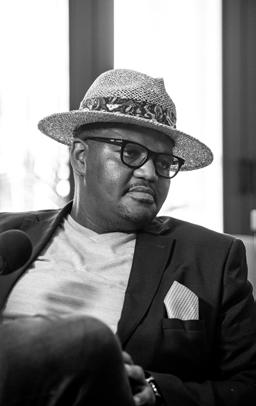
Afew years ago, I received a call from what I believed then to be a small, up-and-coming ad agency, The Odd Number. They had reached out to inquire about a project I was involved in, one that focused on supporting grannies in Cosmo City. At the time, I had no idea that this would mark the beginning of a meaningful relationship, one that would eventually lead Transform SA to reflect on a remarkable milestone, the 10-year journey of The Odd Number. Today, I proudly refer to this agency as a “Black-owned advertising giant in the making.”
The story of The Odd Number, co-founded by Xola Nouse and Sibusiso “Sbu” Sitole, is one of grit, vision, and relentless pursuit of excellence. They’ve built a proudly Black-owned agency that has risen to prominence in a fiercely competitive industry, earning respect from clients and peers alike. Their journey is not only inspirational but symbolic of what transformation can look like when talent is matched with opportunity and bold thinking. They are a shining example of the transformation dream in motion.
Yet, while we celebrate such success stories, it is no longer unusual to hear growing skepticism around Black Economic Empowerment (BEE) and its associated policies. These doubts are not only coming from those historically opposed to transformation but also from many who once believed that Broad-Based Black Economic Empowerment (B-BBEE) would be the great equalizer. Frustration is mounting, as
transformation continues at a snail’s pace, and South Africa remains one of the most unequal societies in the world. The data speaks for itself.
This discontent has sparked several reform efforts from both government and private sector stakeholders. Most recently, Minister Parks Tau of the Department of Trade, Industry and Competition (DTIC) announced a R100 billion Transformation Fund. The proposal has triggered intense debate, especially within the maturing Enterprise and Supplier Development (ESD) sector. As the Transform SA Business Opportunities Network (TBONE), we intend to submit formal comments on the Draft Transformation Fund Concept Document by the 7 May 2025 deadline.
It is troubling that even mature democracies like the United States are beginning to regress on issues of diversity and inclusion— an alarming trend that could influence global business practices. Now more than ever, South Africa must act decisively to ensure genuine economic transformation is not only pursued but achieved.
Enjoy the read
Saki Mabhele Publishing Editor saki@transformsa.co.za
Black - owned advertising giant in the making.






communities. Women tend to build businesses that yield strong returns on investment. These are among the many reasons why the NEF, as a leading development funder, is dedicated to growing its funded portfolio of women-owned businesses in pursuit of its mandate of growing black economic participation across South Africa and contributing towards social transformation and growth.
The NEF Women Empowerment Fund, which turns eleven years this year, can help make your dream become a reality, whether it is for agro-processing, beneficiation, construction, energy, franchising, manufacturing, property, services, tourism, transportation or any other sector of the economy. Over the past 14 years, 40% of approvals have benefited black women entrepreneurs. The NEF invites black women entrepreneurs to apply for funding because to Fund a Woman is to Fund a Nation.
www.nefcorp.co.za / www.nefbusinessplan.co.za

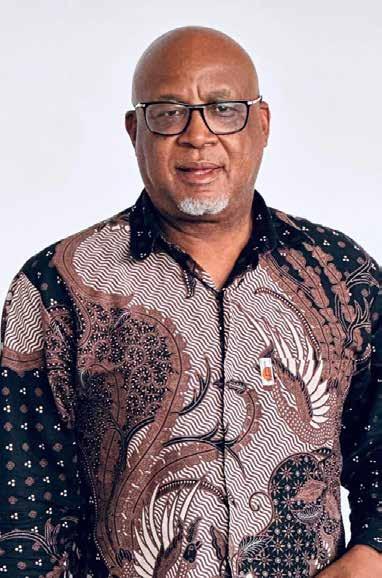
I’mproud to be part of this edition of Transform SA Magazine, which shines a spotlight on the groundbreaking work of The Odd Number advertising agency—a 100% black-owned firm making waves in the industry. Their commitment to diversity, inclusion, and bold creativity represents the forward thinking mindset this edition celebrates.
The growth and development of black businesses in South Africa remains a complex journey, often hindered by systemic barriers. Yet, agencies like The
Odd Number stand as powerful reminders of resilience and innovation. They embody the entrepreneurial spirit that is reshaping industries and driving transformation across sectors.
In this issue, Transform SA Magazine shares stories of black-owned businesses and individuals that are breaking barriers and forging new paths. From overcoming regulatory challenges to securing access to funding and markets, these businesses are creating bold, sustainable solutions to the obstacles they face. In the coming editions Transform SA should also explore the role that should be played by corporate South Africa in supporting transformation—particularly efforts to increase black ownership, participation, and empowerment.
As the magazine reflects on the evolution of this black advertising agency in South Africa, is some way it pays tribute to the trailblazers who laid the foundation for today’s successes. James Moleya of Moleya Associates was instrumental in building the iconic Black Like Me brand in the 1980s, using innovative branding strategies that left a lasting mark on the industry. His legacy continues to inspire a new generation of black entrepreneurs.
That legacy lives on through his son, Thabang Moleya, a renowned filmmaker and producer whose acclaimed works, such as Gomora and Lobola, reflect his creative vision and storytelling prowess. We also recognize industry pioneer Peter Vundla, who co-founded HerdBuoys—the first black-owned advertising agency in South Africa. His influence opened doors and redefined the landscape for black creatives and entrepreneurs.
These stories are powerful reminders of what is possible through innovation, determination, and a belief in one’s vision. In featuring The Odd Number’s journey, Transform SA celebrates a new wave of leaders transforming not just their industries, but the country itself.
To ensure this momentum continues, government-backed initiatives like the Small Enterprise Development Finance Agency (SEDFA) must be strengthened and expanded. Increased access to funding will empower more black-owned businesses to scale, compete, and thrive in the broader economy.
This edition is a tribute to the spirit of collaboration, creativity, and resilience. We hope the insights shared in these pages not only inform and inspire, but also contribute meaningfully to the pursuit of a more inclusive and prosperous South Africa. By amplifying the voices and stories of black entrepreneurs, Transform SA ignites a new generation of changemakers committed to building a better future for all

The National Energy Regulator of South Africa (NERSA) ensures the orderly development of the energy sector, mainly through licensing, setting and approving of prices and tariffs, compliance monitoring and enforcement, and dispute resolution in the electricity, piped-gas and petroleum pipelines industries.
NERSA endeavours to be more innovative and agile in ensuring that we continue to make a valuable contribution to the socioeconomic development and prosperity of the people of South Africa, by regulating the energy industry in accordance with government laws, policies, standards and international best practices in support of sustainable development.
NERSA is a regulatory authority established as a juristic person in terms of section 3 of the National Energy
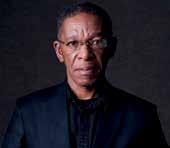
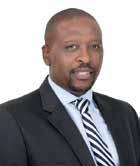
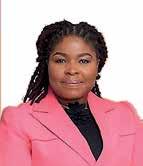
Regulator Act, 2004 (Act No. 40 of 2004). NERSA’s mandate is to regulate the electricity, piped-gas and petroleum pipelines industries in terms of the Electricity Regulation Act, 2006 (Act No. 4 of 2006), Gas Act, 2001 (Act No. 48 of 2001) and Petroleum Pipelines Act, 2003 (Act No. 60 of 2003).
NERSA’s mandate is further derived from written government policies and regulations issued by the Minister of Electricity and Energy. NERSA is
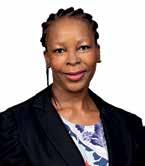
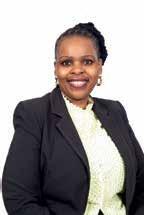
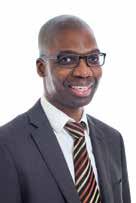
Address: Kulawula House, 526 Madiba Street, Arcadia, 0083 PO Box 40343, Arcadia, 0007
expected to perform the necessary regulatory actions in anticipation of and/or in response to the changing circumstances in the energy industry.
The Minister of Electricity and Energy appoints Members of the Energy Regulator, comprising Part-Time(NonExecutive) and Full-Time (Executive) Regulator Members, including the Chief Executive Officer (CEO). The Energy Regulator is supported by staff under the direction of the CEO.
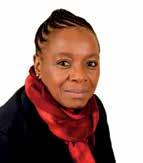
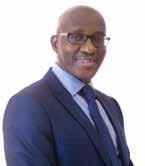
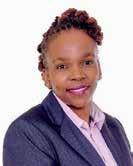
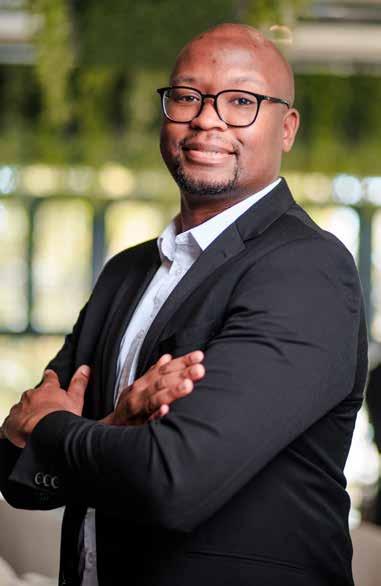
By Monde Ndlovu
Over the last 30 years, South Africa’s transformation policies have centred on the provision of public services, welfare, education, healthcare, employment, housing, and land reform. These themes are crucial for ensuring that black South Africans gain the dignity of life that was denied them during South Africa’s long and painful history of apartheid and, its equally cruel precursor, colonialism.
When we appraise the South African landscape, we should be proud of the strides that have been made in growing the black middle class which now contributes billions to this economy, it is also encouraging to see the many
attempts of developing black businesses and tackling the key issues of ownership and control, even though many challenges still beset us. We should be proud of the number of talented black leaders who now sit on the boards of some of the country’s most powerful organizations, and by the number of black people who have escaped their impoverishment and now live in decent housing, having jobs that pay a minimum wage, are educated and have the means to educate their children, and can access public services, but the disparities between black and white, rich and poor, urban and rural remain too stark and, therefore, we are too far from restructuring and redefining our society.
“General unemployment is over 30% and youth unemployment close to 60%.”
We black people have reached a level where we are expecting the next black person or the next organisation to take full responsibility for transformation, this is part of the transformation fatigue we currently experiencing at both a personal and organisational level.
Land reform has not been realised to the extent that would allow rural populations to access, own, control, use, or manage arable land, and they cannot access the credit they need to create self-sustaining local economies. As a result, rural poverty remains too high and urban centres cannot support the influx of migrants as evidenced by the rapidity of urban decay and sprawling urban slums which show no sign of abating.
The economy has been growing far too slowly to create jobs for South Africa’s growing and overwhelmingly youthful population. General unemployment is over 30% and youth unemployment close to 60%. The pace of programs addressing income and employment have been far too slow and only benefitted a small portion of the population and close to 50% of the population remain dependent on non-wage sources of income such as social grants. Women still earn less than men, the median earnings of white men are about six times that of a black woman.
What is the way forward? A house divided against itself simply won’t stand goes the biblical adage. The nation-building torch must once again be lit. This time not in a symbolic or piecemeal way, but one that illuminates the painful disparities that exist in our society. It is only through embracing the painful realities of the deep divide that we will find the means to bridge it!

Publisher
Publishing Editor
PAPASHA MEDIA (PTY) LTD
Sakhumzi "Saki" Mabhele 1 York Street, Kensington B, Randburg 2194
Tel: 010 023 1845
Fax: 0866 11 44 78
saki@transformsa.co.za
Media Liaison: Thandiwe McCloy
Production Media Assistant: Prishantha Hariparsad
Design & Layout Papasha Media
Printer SAKIPRINT Litho
Content Development
Mzwandile Mamaila
Advertising Sales Luyanda Mbopa
Editorial Enquiries mzwandilem@papashamedia.co.za
Advertising Enquiries advertising@transformsa.co.za
Head of Operations Shumikazi Bhuka shumikazib@papashamedia.co.za
Online Advertising onlineads@transformsa.co.za
General Enquiries info@transformsa.co.za
Tel: 010 023 1845
Fax: 0866 11 44 78
www.transformsa.co.za
Facebook page: Transform SA
Twitter page: @Transform_SA
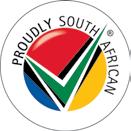
TERMS AND CONDITIONS OF USE / DISCLAIMER
Transform SA is a product of Papasha Media (PTY) LTD . 1 York Street, Kensington B, Randburg, 2194. Transform SA (ISSN No. 2079-7273) considers its sources reliable and verifies as much data as possible. However, reporting inaccuracies can occur, consequently readers using this information do so at their own risk. Transform SA is sold with the understanding that the publisher is not rendering a legal or advisory service. Although companies and contributors mentioned herein are believed to be reputable, neither SAKIPRINT (Co. CK2002/063910/23), nor any of its employees, sales executives or contributors accept any responsibility whatsoever for such persons’ and companies’ activities. SAKIPRINT CC. All rights reserved. No part of this publication may be reproduced, stored in a retrieval system or transmitted in any form without prior written permission of the publisher. Permission is only deemed valid if approval is in writing. Transform SA buys all rights to contribution, text, images unless previously agreed to in writing. Stock images supplied by Shutterstock.com
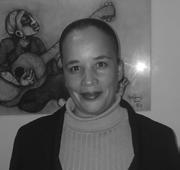
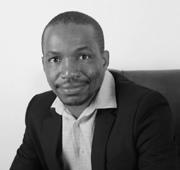

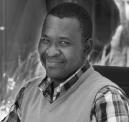
Thandiwe McCloy has over 20 years of experience in journalism and communications. She holds a Bachelor of Journalism Degree from Rhodes University and a Bachelor of Arts Honours in Development Studies Degree from the University of South Africa (UNISA). Most of her experience has been within the NGO sector and she is passionate about using her communications skills to promote social justice. She has profiled entrepreneurs, assisting them to attract clients and generate income to uplift themselves, their families and communities. Her skills are writing and subediting as well as carrying out public relations and social media.
Coley Zephenia is the Smart City Task Team convenor for the South Africa BRICS Business Council Manufacturing Working Group (SABBC MWG). An entrepreneur and an established information practitioner with more than 20 years of diverse consulting experience in manufacturing, mining, retail, supply chain, IT, financial, telecoms and utilities, Coley has been involved in development of value-adding IT systems and business solutions for various clients. He has provided subject matter expertise in complex and large scale ICT projects for entities across different industries including government departments, SOCs and municipalities. Coley is passionate about transformation and harnessing next generation technologies for sustainable development.
Matome Seketa is a qualified digital content writer with over 8 years of professional experience. His journey began in university, where he was an active member of the University’s Writer’s Guild and served as its Vice President. During this time, he also worked as a freelance content writer for Blue Monkey Magazine. He has explored various writing avenues, including authoring forewords for books and writing columns. Matome holds a Bachelor of Arts in Communication and a Digital Marketing Certificate from the Red and Yellow Creative School of Business. After graduating, he gained experience as a legal secretary before transitioning to his current role as an SEO copywriter.
Mzukisi was admitted to practice as an attorney in 2008 and called to the Bar in 2014. Before joining the Bar, he acquired considerable experience in the banking law, property law and financial services regulation and supervision while working at ABSA Bank, the Estate Agents Affairs Board (now the Property Practitioners Regulatory Authority) and the Financial Intelligence Centre. Since his pupillage Mzukisi has been involved in litigation requiring knowledge of a wide range of law disciplines including corporate and commercial law, employment law (including health and safety law) and others and has been privileged to be led by numerous well-known senior counsels. He has also become an AFSA-certified mediator. His preferred areas of practice include Commercial Law, Corporate Law, Labour Law, Engineering & Construction Law, Constitutional and Administrative Law and Procurement law. Mzukisi holds a BJuris from the University of Fort Hare; LLB from the University of South Africa and Diplomas in Anti- Money Laundering Control Diploma and Corporate Governance from the University of Johannesburg. In a short space of time, he had joined the Bar he worked with reputable advocates as appearing in his curriculum vitae. His experience, profile and knowledge will add greatly to the services your company may require as a client and further enhance your firm’s reputation.

Donald Trump’s conflicts over South Africa’s Land Expropriation is just a façade of his racist antics.
By Matome Seketa
I
t’s no secret that Donald Trump has built his political career on lies, fearmongering, and exaggeration, and it’s no surprise that he’s using South Africa’s land reform policies to stoke his far-right base.
Trump’s claims that the South African government is allowing “ethnic cleansing” against white Afrikaner farmers is dangerous lies. And this is not about concern for farmers; he is intentionally fueling racial paranoia and giving white nationalists, both in the U.S. and beyond, exactly the kind of grievance-driven narrative they thrive on.
Even a semi-literate individual would understand the Expropriation Act. It’s simple: South Africa is the most unequal society in the world, and this is by design. The vast disparities in land and wealth ownership are the direct result of centuries of white supremacist rule—first under colonialism, then under apartheid. Today, only 7% of South Africa’s population—almost entirely white— owns 70% of private farmland, while over 64% of Black South Africans live
“South Africa’s land reform is not about punishing white people, it is about justice.”
in extreme poverty. These figures are not just statistics; they represent the enduring legacy of land dispossession, racial capitalism, and statesanctioned theft.
Although we are yet to witness how viable and effective the land reform process will be, we know the law does not serve to “seize white farmland without compensation” in some act of state-sanctioned theft. According to the presidency, this will be a constitutional, legally defined process aimed at addressing a centuries-old crime: the forced removal of Black South Africans from their land.
South Africa’s land reform is not about punishing white people—it is about justice. But for Trump and Musk, justice itself is the enemy because it threatens the privileges their ilk have hoarded for generations. Instead of supporting real solutions, they feed their followers the same tired lie: the world is out to get white people, and only they—the wealthy and powerful—can protect them. It’s a grotesque con, but one they are more than happy to keep running.
And now, to prove his point, Trump has chosen to sanction South African leaders, strip the country of all forms of U.S. aid, and offer white South Africans refugee status in the United States. This comes from the same man who has spent years demonizing and expelling refugees from wartorn, truly unsafe countries.
The rich get richer and the poor get poorer, this is how South Africa’s VAT increase threatens the lives of the underprivileged.
According to Stats SA, over 64% of Black South Africans already live in dire poverty. Moreover, the official unemployment rate is now standing at over 40%, the average South African is already grappling with economic despair. The previous VAT increase has resulted in a 0.7% decline in consumer spending and a 0.5% rise in inflation. Yet, in the midst of this crisis, the government has chosen to increase VAT from 15% to 15.5%, and then to 16% the following year—a move that serves one purpose: keeping state coffers (which overwhelmingly benefit the corrupt) afloat.
Low-income households already spend up to 40% of their earnings on basic goods. Now since essentials like food, transport, and household necessities

will become even more expensive, there will be little purchasing power left for these already struggling families.
This tax hike threatens to regressively exacerbate existing inequalities and plunge low-income households deeper into poverty.
This hike is poised to inflict even greater harm, compelling businesses to slash costs, potentially leading to more job losses.
Instead of taxing the poor to cover its inefficiencies, the government should be targeting those who can afford to pay more. Progressive taxation, closing corporate tax loopholes, and tackling corruption could have provided real solutions. Instead, the government has taken the easy route—forcing those with the least to carry the heaviest burden.
Congratulations to the Kenny Fihla as he takes on the role of CEO at ABSA after over 15 years of serving in the banking sector.
Kenny Fihla’s appointment as CEO of Absa comes at a time when the likes of Rob Hersov are spreading harmful narratives that undermine the merit-based achievements of Black (and underprivileged) South Africans. Fihla’s success story directly challenges these baseless claims.
He has proven himself time and again for over 15 years serving in the banking sector. He was a deputy CEO of Standard Bank and according to reports by Reuters he has played a key role in doubling the bank’s Corporate and Investment Banking division’s earnings to R20.5 billion.
A recent survey by the South African Institute of Race Relations found that Black South Africans are still underrepresented in corporate leadership. This makes Fihla’s rise to the top all the more remarkable.
For young Black professionals, Fihla’s rise should serve as a reminder that the glass ceiling can be broken, hard work and skill are recognized, and leadership positions are within reach.
Fihla’s leadership in a sector traditionally dominated by white men marks a shift toward a more representative financial industry. It’s not just about diversity for diversity’s sake; it’s about a reflection of a financial sector that mirrors the nation it serves.

By Adv. Mzukisi Mgxashe
The 1996 South African Constitution proudly affirms that “South Africa belongs to all who live in it, united in our diversity.” This is a noble sentiment, one that speaks to a vision of collective ownership and shared sovereignty. But how does this principle hold up when measured against the realities of governance, public service, and fiscal responsibility? It seems that while anyone who resides within our borders can claim ownership of South Africa’s benefits, the burden of financing these benefits falls disproportionately on South African citizens.
A recent legal judgment, Centre for Child Law and Others v Minister of Basic Education and Others (2840/2017) [2019] [ZAECGHC 126], further underscores this paradox. The Graham’s town High Court ruled that a child’s
right to basic education is unconditional and should not be restricted based on legal status. This means that undocumented children cannot be excluded from public schooling, as such exclusion would be unconstitutional. The court confined itself to S.29 of the Constitution that guarantees everyone the right to basic education.
No financial implications were considered in enforcing this Constitutional right. Yes, whereas there’s is not a single United Nations treaty explicitly outlining a nation’s responsibility to its citizens. Several international human rights treaties and conventions, along with the Universal Declaration of Human Rights, establish obligations for states to protect their citizens, including those in foreign countries. No directive was made by the court

for the South African government to take up this matter with the governments of the countries these undocumented foreign nationals come from. Whereas the Convention on the Rights of the Child (CRC), outlines the rights of children, including the right to protection from harm and exploitation, regardless of their location, and obligates states to ensure these rights are upheld.
The problem in these African countries is not poverty but mismanagement of governance. We have porous borders. These African countries that inhumanely deport their citizens to South Africa, without consequences are deliberately create unnecessary conflicts between South Africans and foreign nationals. They know this thing is unsustainable. This leads to the creation of this blackmailing term xenophobia on the part of the South Africans when this is not the truth. South Africans most especially at the lower echelons of economic chain, find themselves excluded cheaply in the economic stream.
The BELA Act subsequently reinforced this
principle, effectively giving undocumented foreign nationals’ children precedence in accessing education. If a foreign child arrives at a school before a South African child, the foreign child’s right to admission is protected, regardless of the legal status of their parents.
Education is one of the most crucial tools in breaking the cycle of poverty, and every child deserves a quality education. However, the prioritization of undocumented learners over South African citizens highlights inconsistencies in policy implementation. It is not about denying education to foreign children but about ensuring fairness in how resources are distributed. South African parents who struggle to find placement for their children in well-resourced schools are
is little discussion about how undocumented individuals—who benefit from public resources—should also be contributing in some form. Whether through tax contributions, levies, or a formalized system of shared responsibility, there needs to be a broader conversation about fiscal fairness.
Advocate Muzi Sikhakhane SC once remarked that our Constitution is a “lullaby”—a comforting song that soothes but does not change reality. Is he wrong? It becomes increasingly difficult to accept the oft-repeated phrase that we have “the best Constitution in the world” when it presides over one of the most unequal societies globally. The glaring contradictions in our laws expose a deeper structural problem: a disconnect
“The problem in these African countries is not poverty but mismanagement of governance.”
right to feel aggrieved when they see a system that appears to work against their interests.
Meanwhile, South African citizens are expected to bear the financial burden of the country. During his budget speech on March 12, 2025, Minister of Finance Enoch Godongwana urged South Africans to comply with the law and support SARS in revenue collection. It is puzzling, then, that while the Constitution declares South Africa to belong to all who live in it, the responsibility for funding government services falls squarely on the shoulders of South Africans.
One must ask: why does the responsibility of contributing to the national budget not extend to all who reside in South Africa? While tax laws require South Africans and permanent residents to contribute to state coffers, there
between idealistic constitutional principles and practical governance.
A truly just and equitable society does not place the entire financial burden on one group while extending unrestricted benefits to another. If South Africa truly belongs to all who live in it, then all who live in it must contribute fairly to its upkeep. The financing of the fiscus should not be the sole responsibility of South Africans, but rather a shared duty of all who call this country home. The time for difficult but necessary conversations about fiscal responsibility, resource allocation, and national priorities is long overdue. Without a recalibration of these policies, we risk deepening resentment, fostering division, and exacerbating inequality in a country that is already struggling with these issues.
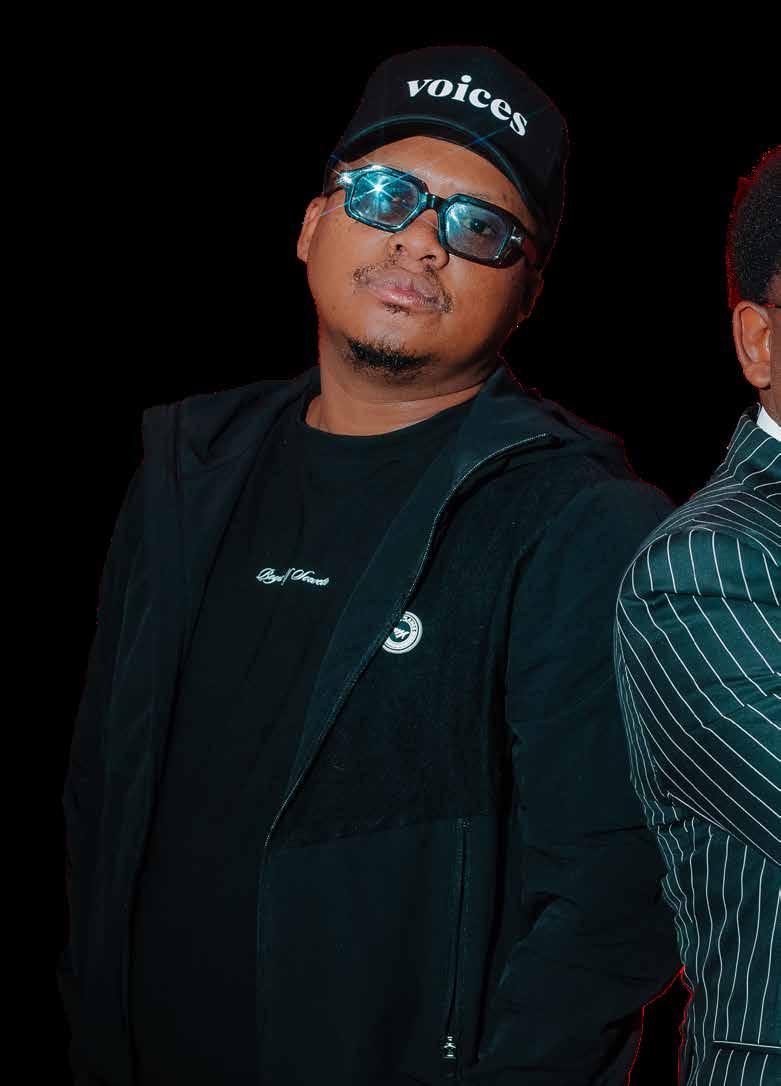
By Saki Mabhele

How two Joburg-born visionaries built one of South Africa’s most influential creative agencies — and what the next decade holds
“We didn’t just want to be different — we wanted to mean something different.” — Xola Nouse
In 2015, two lifelong friends from Johannesburg set out to build something different. Not different for the sake of it, but different in the way that matters — a business rooted in authenticity, creativity, and courage. Ten years later, The Odd Number has emerged as one of South Africa’s most respected and awarded advertising agencies, not just for its work, but for what it represents.
Co-founded by Xola Nouse and Sbusiso “Sbu” Sitole, The Odd Number isn’t just an agency. It’s a cultural force. A creative home. A living example of what’s possible when business and art, discipline and instinct, friendship and partnership come together — and stick together.
Xola Nouse was “born, bred, and buttered” in Johannesburg. His family origins trace back to the Northern Cape, but his soul, his sense of identity, and his entrepreneurial fire were all forged in the heart of Joburg. Growing up in Soweto, Nouse was raised in a home where business wasn’t a foreign concept, it was the language of life.
“My grandfather in Kimberley owned a large store that later became a gaming spot where people came to play snooker, Pac-Man and all manner of other games,” he recalls. “My dad left the corporate world at IBM, Unilever and Telkom to start his own business. We talked business all the time.”
That early exposure embedded in him a belief that starting and growing something of your own was not just a dream — it was a duty.
It was in the playgrounds and classrooms of Joburg that Nouse met Sitole. Both young and driven, their goals diverged in profession but converged in purpose: Nouse wanted to be a in business; Sbu, an advertising creative.
“He asked me what I wanted to do, and I said, ‘I want to be a businessman.’ I asked him what he wanted to do, and he said, ‘I want to be in advertising.’ So I asked him to come up with an ad, and he hasn’t stopped since.”
The Odd Number isn’t just a name. It’s a philosophy. Nouse and Sitole are opposites in many ways — Nouse is reserved, methodical, analytical. Sitole is outgoing, exuberant, and instinctive. But those differences are exactly what make their partnership powerful.
“We don’t compete for each others space,” says Nouse. “We complement each other. We share similar values, but we approach things from different angles. He lights up a room, and I tend to reflect in the corner of it. But it works.”
He lights up a room, and I tend to reflect in the corner of it. But it works.”
Their personalities, academic choices, and even creative influences reflect their balance. Nouse studied business and strategy, while Sitole leaned into art, drama, and the humanities. But it was hip-hop — both global and local — that gave them their early creative swagger.
The Odd Number was formally registered in 2011, but it wasn’t until 1 April 2015 that the agency officially opened its doors. And no, the date wasn’t a prank.
Armed with nothing more than personal savings and a belief in their combined vision, Nouse and Sitole walked away from steady corporate jobs — Nouse in management consulting, Sitole in toptier advertising — to build something of their own.
“There were no financial backers,” says Nouse. “We started with savings from our early thirties. The first big break came from KFC Africa — launching the Streetwise brand across East and West Africa. That set the tone.”
By the end of year one, The Odd Number had onboarded KFC Africa, Brand South Africa, and BBC Worldwide. The small two-man team operating out of a shoebox office was suddenly in conversations with some of the biggest brands on the continent.
What makes The Odd Number stand out isn’t just its black ownership — it’s the values the agency has built itself on. “We weren’t trying something we hadn’t done before,” Nouse explains. “We had a solid base from our previous careers. From day one, it was about quality — about being great at what we do, not just having a big team.”
Their strategy was deliberate: attract clients who mirror their own ambition, passion, and standards. “The clients we work with must believe in excellence and want to do remarkable work.”
That mindset — of building long-standing relationships, of delivering quality over quantity, and of staying grounded in values — is what’s fueled the agency’s sustained success.
Over the past decade, The Odd Number has racked up awards and accolades. From the Loeries to Cannes Lions, the agency is regularly celebrated for its creativity and impact. But the recognition goes beyond trophies.
“We complemented each other from the beginning, business and creativity. It was natural.” – Sbu Sitole
In 2023, they were named Independent Agency of the Year in the Africa and Middle East Region by the Loeries. Financial Mail followed suit, naming them Medium-Sized Agency of the Year. Their client base — which includes long-term relationships with brands like Game, Momentum and TymeBank — speaks volumes about their consistency and credibility.
But Nouse is quick to note: success hasn’t come from a single “aha” moment. “There hasn’t been one big turning point. It’s been a series of steps — some wins, some losses. But the reality is, you’ve got to wake up every day and deliver. That’s what builds something real.”
One project that still stands out for Nouse is a piece for Brand South Africa during the xenophobic violence in 2017. “The brief was initialy meant to just be a simple radio spot, but we turned it into a powerful visual piece. It wasn’t about selling a product. It was about delivering a message that needed to be heard – one of respect and love for one another .”
As one of South Africa’s leading 100% blackowned agencies, The Odd Number is a beacon of transformation. But Nouse is careful not to romanticize the journey.
“We’ve had some luck, yes. But there are still systemic challenges — the cost of creative education, limited access to big opportunities, barriers to entry. Our story isn’t typical of black businesses in advertising. It’s the exception.”
And yet, the agency continues to thrive. With nearly 60 employees, two new subsidiaries in the pipeline, and plans to further expand into across the continent, The Odd Number is positioned for its next chapter. “We’re a mid-sized business, strong in ideas, focused on creativity. We do a few things well — and we want to keep it that way.”
Their goals are clear: remain relevant, sharpen their offering, invest in talent, and grow beyond South
Africa’s borders.
Behind the headlines and campaigns, the real story is one of family. “We’ve lost parents along the journey. Our families are now one big family,” says Nouse. Between the two of them, they’re raising six kids — five boys and one girl. They share milestones and show up for each other – much like they’ve done when they met as 12 year old schoolboys.
“I take my kids to school every day. That’s a privilege. We quiet the radio and just talk. It’s precious. And I want them to grow up understanding that life isn’t just about work — it’s about showing up, being present.”
Asked what advice he gives to young people, Nouse is clear: “Earn your stripes. Learn. Make mistakes where there’s a cushion. Work with the best before you try to be the best. Starting your own thing too early, without reference, is risky.”
He encourages aspiring businesspeople to spend time in structured environments, soak up knowledge, and build their toolbox before launching their own ventures.
As The Odd Number marks a decade in business, its founders remain grounded, grateful, and as ambitious as ever.
“Our journey isn’t over,” says Nouse. “We’ve worked hard on the body of the car — our market positioning is strong. Now we’re focusing on the engine — the systems, people, and processes that will take us into the next ten years.”
Whether it’s on a golf course with their sons, or inside a boardroom pitching the next big campaign, Nouse and Sitole remain a powerful reminder that the most impactful businesses don’t just sell products — they tell stories, challenge norms, and build something bigger than themselves.


Transformation has been a buzzword in South Africa for a long time, but questions still linger about whether transformation has taken place in real terms in the country over the last 30 years, up to 2024.
The National Treasury, in its 2017 Budget Review, identifies broad-based transformation as an instrument to promote growth, mobilise investment, create jobs, and empower citizens. “It must create new resources to support social change, including assets and livelihoods for the majority, and strengthen South Africa’s constitutional foundations,” the report says.
By way of comparison between the public and private sectors, the state is significantly ahead in addressing male-female inequality in the top echelon and attending to other aspects of transformation, such as addressing workplace discrimination and ensuring equitable deployment filling of positions.
The number of women in the Cabinet has grown markedly over the years, ostensibly inspired by the 50-50 equality benchmark initiated by the former ruling party for its political deployments. Of the 34 Cabinet Ministers, 14 are women, which was already close to half. Out of 43 Deputy Ministers 18 are females.
Further, to ensure equity, it had become an unwritten convention in the ANC-administered municipalities that where an executive mayor was a man, a council speaker has to be a woman and vice versa, except in a few instances. Geraldine Mettler, writing in the Local Government Bulletin, acknowledges Gauteng as the only province where there is near equal representation of genders.
While transformation was no longer an issue in the state, the private sector in South Africa is lagging behind. Generally, the leadership echelon of many

companies does not reflect the country’s demographics. There are many cases of lack of transformation in company ownership and executive leadership. Some employers openly resist transformation while tokenism, fronting including hiring of foreign immigrants at the expense of locals to fake compliance or fill quotas is common practice.
In the financial services sector, the 2023 Transformation Report, commissioned by the Banking Association South Africa, indicates that the total number of directors in banking declined for the second consecutive year. Instead of growing, the industry saw the percentage of African board members drop to 39%, compared to a target of 55% for the period. That’s 30 years plus since the dawn of democracy in 1994.
However, ownership levels increased significantly in 2021, with Black voting rights now at 32% (up from 27% in 2020), while Black women’s voting rights climbed to 15 (up from 12%).
The 2022 report, released earlier, showed a decline in the number of white managers among senior management over the past two years. The number of Black African managers increased from 38% in 2019 to 48% in 2020, but remains below the 2018 total of 55%. The number of Indian and Coloured top senior managers also increased over the prior year.
In senior management, a 12.7% increase in African senior managers brought the total number to 1,853, forming a sizeable pipeline of black managers with the potential to move into the top senior level.
In 2019, the Council commissioned a survey on transformation and community development performance among its 32 member companies, which represented 79.5% of the industry total and 93% of the employees. The study found the Historically Disadvantaged South Africans (HDSA) owned 39,5% (weighted average) of the equity, significantly above the 26% equity ownership 2014 target. The survey was focused on five key transformation elements, including ownership and employment equity.
Outlining transformation in business, Shaun Smit, director of Transcend Capital, said in South Africa, employee ownership is primarily driven by B-BBEE or BEE) and Employee Share Ownership Plans (ESOPs), which are designed to increase employee engagement, align employee and shareholder goals, reward employees and a tool for business succession planning. “Black ownership via an ESOP helps to improve a company’s overall BEE status and competitive positioning. Although ESOPs have not been widely utilised, there is no question that the private sector could more effectively use them to drive transformation,” Smit wrote in Bizmag in 2022.
He said South Africa’s BEE strategy is not only intended as a moral initiative to redress the wrongs of the past but also as a growth strategy to fully exploit the country’s economic potential by bringing the black majority into the economic mainstream.
Black Business Council Chief Executive, Kganki Matabane, condemns what he calls “tick-a-box” transformation by many white businesses. He said that some in the private sector only did the bare minimum just to meet requirements and get points without being committed to genuine transformation. This despite the law demanding that ownership and control of companies must reflect the country’s demographics.
Matabane said that blacks in the private sector were mainly hired for support services, and the highest they could advance to were corporate services – such as human resources and marketing. However, very few were elevated to ownership, including shareholders and top executive levels, where profit and losses are discussed and acted upon.
“They make sure blacks are not running the core business or placed in positions of control where they could be company CEOs and COOs. The private sector talks about the transformation, but they do nothing to promote black individuals in an honest manner. Those who own and control the organisations are the ones who decide where the company must procure from and that is where transformation must happen,” Matabane said.
In its 2017 National Treasury Budget Review highlighted that South Africa needed transformation that opens a path to inclusive economic growth and development. “Growth without transformation would only reinforce the inequitable patterns of wealth inherited from the past,” Treasury said.
By Mzwandile Mamaila

CEO of the Beer Association South Africa, Charlene Louw (45), speaks to Transform SA about her journey as a business leader.
Q: Tell us a bit about yourself and where you from.
I was born in Mafikeng in the North West Province to David and Sybil Louw, both public servants. At the age of 10, I became a boarder at an all-girls’ school in Kimberley, Northern Cape.
Q: What inspired you to pursue your current career path and what was your major breakthrough?
I’ve always had a passion for helping others and solving problems, which naturally drew me to law. After completing my studies, I was admitted as an attorney of the High Court and started practicing as an associate at a law firm.
However, I soon transitioned into public service, taking on a role as a Senior Legal Manager in the energy sector. That role marked a turning point in my career—I was appointed at only 24 years old and held the position for nearly five years. Since then, I’ve taken on various executive roles in both the public and private sectors.
Q: Could you share some challenges you’ve faced and how you overcame them?
I’m naturally introverted and cautious. In professional environments, especially as a woman, that often led to assumptions about my competence. I’ve been underestimated, which forced me to work harder to prove myself.
But I used that as an advantage—my strength lies in listening and observing. I paid close attention in meetings, picking up on key details and the phrasing that often swayed decisions. When I did speak, I ensured my input was valuable and impactful. That approach earned me credibility and respect.
Q: Did you have a mentor or role model?
My mother has always been my greatest role model. Her strength, resilience, and unwavering compassion have deeply influenced my values and how I approach leadership and life.
Q: What motivates you to keep striving for excellence?
I’m driven by purpose. Knowing that my work positively impacts others and the organisations I serve keeps me going.
I’m also a lifelong learner—books, workshops, and networking keep me inspired. Staying curious allows me to grow continuously and seize new opportunities.
By Mzwandile Mamaila
Phyllis Ndlovu has built her own therapy business after years of practicing as a clinical psychologist.
Q: Can you tell us a bit about yourself and where you’re from?
I was born and raised in Soweto. I’m a daughter, a sibling, and a mom and when I’m not all those things, I am a clinical psychologist who runs a consulting firm called Kisima Psychological Services
Q: What inspired you to pursue your current career path, and what was your major break though?
Around 2010, I had been a clinical psychologist for many years when I considered executive coaching. 2017 was a game changer to discover the precision of neuroscience in coaching and the fact that clients didn’t have to sign up for endless coaching sessions to get transformative results.
Q: Could you share some of the challenges you faced on your journey and how you overcame them?
Transitioning from being a psychologist to occupying a leadership role. It became a reality for me that “what got you here (as a successful psychologist) will not take you there (to be an effective leader)”. I made many mistakes in the early stages. Some of those mistakes are part of my current case study material in my facilitation of leadership teams. How did I overcome? I had to go for training interventions and read extensively. Direct feedback from my leader and colleagues was humbling (and at times humiliating), but it was good fodder for my personal growth. Ultimately, my initial leadership mistakes have become a source of experiential learning for others.
Q: What motivates or drives you to continue pursuing excellence in your field?
Basically, I’m motivated to bring neuroscience-
based content and techniques towards establishing how to improve the leadership call. Many of the techniques I share are an integration from three disciplines, namely Neurology, Psychology and Physiology.
Q: Do you have any advice for young people or aspiring professionals who aspire to achieve success like yours?
Make it your business find your “why” sooner rather than later. If young professionals are not purposeful on their respective journeys, they run the risk of being left behind and becoming irrelevant. In the same vein, young professionals need to be open to re-purposing their skills, especially given that many roles are likely to be replaced with automation. In a nutshell, they need to be present and attentive to their career trajectory and not render themselves vulnerable to a sense of entitlement.
Q: How do you maintain a work-life balance while excelling in your career?
I’m quite intentional about blocking off times for personal reflection and re-energising. I’m very careful about who I let into my space when I am resting. Immediate family and a few friends are my stable for those moments. As an introvert, I get rejuvenated by fewer, smaller crowds. But also, what helps me feel balanced is what Thebe Ikalefeng says “do work that matters, not only work that makes money”.
Q: What are some key lessons you’ve learned throughout your career that have contributed to your success?
The top three for now are: 1) Client rejection is not personal, it’s often a matter of misalignment between their trajectory and mine; 2) Neuroscience has taught me that all of us have finite neural energy for each day. This neural energy is distributed across all our physical and mental activities, as well as our decision-making and all the choices we make. While most of the neural energy goes to unconscious activities (breathing, digestion etc), I am very careful
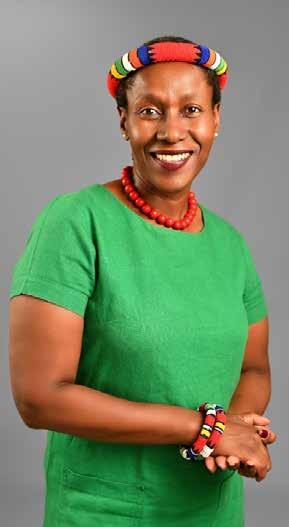
about how I use the energy that is within my consciousness. 3) I have also learnt and observed that when I encounter setbacks, resilience enables me to do two things: a) Bounce back to self-management and self-regulation, and b) Bounce forward to functioning at a higher, more optimum level than before the setback occurred. This is due to having grown from the setback and acquired new ways of coping with the world as I know it.
Q: Can you share a memorable moment or achievement that stands out in your career journey?
I am quite proud of myself for having completed my PhD in neuroscience and leadership. The findings thereof will continue to be part of my life’s work.
Q: What investment you wish you had made earlier?
I definitely wish I had trusted the suggestion that if you save R100 monthly from age 25 years, you will be a millionaire by the time you retire. But I’m thankful that it is never too late to start, so I’m well on my way now.
By Mzwandile Mamaila
The African Footprint of Hope Organisation (AFOHO) commits itself to changing people’s lives for the better. Founder and CEO Nolitha Nkomana shares insights.
Where are you from and what is your profession?
I am originally from Alice in the Eastern Cape, though I was born in New Brighton, Port Elizabeth. At heart, I am a development practitioner, passionate about community empowerment. I hold a Bachelor of Arts and an Honours degree from the University of Fort Hare, as well as a Master in Policy Studies a joint programme from University of Fort Hare and University of Zimbabwe. After working for over 20 years—initially at the University of Fort Hare and later within government, in 2008 I founded a non-profit company, African Footprint of Hope Organisation and I later resigned in 2009 to follow my passion.
What inspired you to start an NPO and when did you start it?
My inspiration came from a deeply personal place. My mother, who dedicated her time to running an NPO in Alice supporting the elderly, planted the first seeds of compassion and community service in me. I have always had
a strong sense of justice and a desire to stand up for others. From a young age, I have spoken out and stood for what’s right—and I wanted to channel that boldness into something greater. That led to the birth of African Footprints of Hope Organisation in 2008.
What does the African Footprint of Hope Organisation focus on?
AFOHO is a multifaceted organisation committed to holistic community upliftment in the Eastern Cape. Over the years, we have implemented a range of impactful programmes, including:
a) Sports Programmes: We provide inclusive platforms for youth to engage in athletics, develop discipline, and grow their talents through training, competitions, and awards in partnership with local clubs.
b) Arts, Culture & Heritage: We celebrate and preserve cultural identity through projects like the Raymond Mhlaba Legacy Project and Archie “ZZ” Sibeko Memorial Lecture, sparking meaningful dialogue and pride in our heritage.
c) Skills Development & Job Creation: We empower youth through practical training, internships, and cooperative programmes. In
partnership with SETAs and institutions, we equip individuals for sustainable employment and entrepreneurship.
d) Environmental Education: We promote environmental education and awareness through community clean-up campaigns. Currently we are running an Adopt a River Programme funded by National Lotteries Commission South Africa the Lottery Foundation and this has expanded to cleaning public spaces and Alice Town as a whole.
e) Food Security: Through our partnership with the Kolisi Foundation, since COVID19 we have been distributing food parcels to destitute families, groceries to community kitchens addressing hunger and poverty.
What motivates you to consistently help those in need?
I am constantly reminded of how deep the need is in our communities. Every day, individuals and organisations approach me seeking assistance—and knowing that even small acts can make a big difference fuels me. Seeing the transformation in people’s lives, the hope restored, and the dignity regained through our work keeps me going.
AFOHO is a multifaceted organisation committed to holistic community upliftment in the Eastern Cape. ” “
How would you describe your journey of running an NPO thus far?
It has been a deeply fulfilling yet challenging journey as we are not a funded entity. We, however, generate our funds through the administration fees we receive from our funded SETA programmes.
There have been many hurdles—especially when it comes to fundraising, where closed doors often outnumber the open ones. But the rewards far outweigh the difficulties. Seeing lives change, communities strengthened, and young people empowered makes it all worthwhile. I always encourage those who are passionate about making a difference to pursue it—starting an NPO is not easy, but every action matters. There is still so much work to be done, and every helping hand makes a difference.
Provide an approximate number of beneficiaries the African Footprint of Hope Organisation has had
a) We have distributed 5196 food parcels to destitute families supported by Kolisi Foundation.
b) We have fed over 200 000 children and elderly through our community Kitchen supported by Kolisi Foundation.
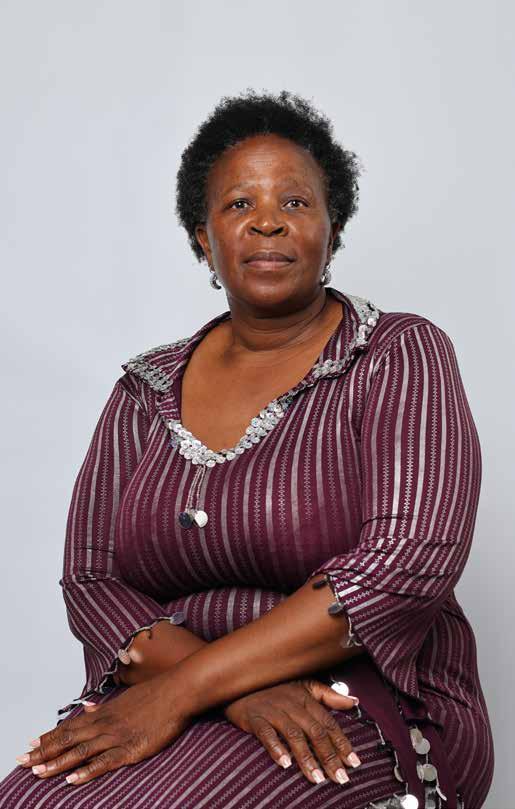
c) We have renovated a Community Hall, school and homes working with private sector.
d) Distributed over 3000 sanitary towels to various schools.
e) Distributed over 500 school shoes to destitute learners in various schools
f) For three years in succession we distributed 500 school shirts to various schools per album.
g) Built a toilet for a creche at Eluphaphasi Village in Cala.
h) We have placed unemployed graduates on Internship Programmes funded by CETA and Services SETA.
By Coley Zephenia
Today the world is facing a 68% increase in urban population. The growing frequency of natural and man-made emergencies has also added another dimension of complexities to managing exposed cities. To address concomitant urbanization challenges, it has become imperative for affected governments to consider building strategy driven, process oriented and technology enabled smart cities that are suitable, resilient and liveable.
While technologies are new and rapidly changing, smart city concept dates back to antiquity. Alkebu-lan (Africa) actually hosted majestic ancient smart cities, from Egyptian cities of Memphis and Thebes; the Carthage and Aksum in modern day Tunisia and Ethiopia respectively. Severely other notable wonder cities include Kerman and Meroe (Sudan), the Great Zimbabwe (Zimbabwe) and the quintessential Timbuktu (Mali).
In the current epoch, Africa now has over 44% of its population in urban centres. Smart city concept has regained momentum as an approach to improving life in existing cosmopolitan centres or the impetus behind building totally new cities. It is also being used as a dashboard framework to guide sustainable city developments and fostering economic growth. If wellorchestrated within Africa and strategically partnered with BRICS+, the smart city movement has the potential to immensely transform the continent’s urban environments for the better.
To this end, the Smart City Task Team which is part of South Africa BRICS Business Council Manufacturing Working Group (SABBC MWG) in

collaboration with Papasha Media are rolling out a Smart City initiative. This will be a platform consisting of a series of Smart City symposiums and Smart City conference debut from 2025 and beyond. The Johannesburg Stock Exchange (JSE) will host our first symposium on Building Smart Cities for Sustainable Development Opportunities and Challenges for Africa and BRICS+.
Indeed this Smart City platform could not have come at a better time than this. Fashioned after African waterholes, the events will entail convergence of experts, policymakers and industry leaders to discuss smart city latest trends, challenges, opportunities and solutions.
The platform will also foster collaborations across African and BRICS+ cities that will be tied to SMART objectives while ensuring concrete progress is effectively tracked and results comprehensively reported.
1. A Shared Vision: A concerted Effort: African leaders and stakeholders in urban planning and development now have a multi-faceted platform to execute strategic smart city design and solutions implementation at global levels. African governments lagging behind will be able to easily deliver continental vision-aligned blueprints that can be used to collaborate BRICS+ partners in expediating transformation and maturity of their urban milieus into smart spaces.

2. Funding and investment opportunities: This platform will feature discussions on the funding and investment opportunities available for smart city projects in Africa. Key stakeholders, African companies and SMMEs will come to learn about these opportunities and connect with serious investors and funding agencies. One of the KPIs for this Smart City platform will be measuring deals and projects for alignment to Smart objectives.
3. Capacity Building and Skills Development: Governments and municipalities have absolute leverage to expand their skills and capacity in areas such as smart city planning, design, and implementation. Large companies, SMMEs and general citizens can improve their competitiveness and participate more effectively in the smart city landscape.
4. Access to cutting-edge knowledge and expertise: Renowned experts and thought leaders in the field of smart cities will share their insights and experiences on the latest trends, technologies and best practices. Manufacturers will also showcase their top of the spectrum equipment, information age tools and technologies such as AI driven UAVs, humanoids, flying cars etc..
5. Exposure to markets and opportunities: African companies and SMMEs will gain insights into the latest developments and trends in the Smart City market with Africa’s projected revenue reaching 1.5 billion this year and annual
growth rate of 12.01% between 2025 and 2029. Exploration of new business prospects and expansion of operations will be expected outcomes.
6. Networking opportunities: The platform will connect African companies and SMMEs with other stakeholders, including government officials, policymakers, industry leaders and BRICS+ experts and companies. This will lead to new business opportunities, partnerships and collaborations.
To our valued stakeholders, two-hour symposiums at the JSE on Smart Cities for Sustainable Development and the Smart Cities Conference in September 2025 are must-attend events!
This initiative offers unique opportunities for African municipalities to synergistically rollout smart city projects in the context of a shared African and BRICS+ vision, access cutting-edge smart city knowledge and expertise as well as commensurate funding and investment.
The Smart City platform is a step in the journey of a thousand miles to explore this unlimited potential.
*Don’t miss this opportunity to be part of the resurgent smart city movement in Africa!

By Mzwandile Mamaila
Mogale Maleka uses his tech skills to increase food production in South Africa without increasing the use of water, electricity or land.
Tell us about yourself.
I’m Mogale Maleka, co-founder of AB Farms, an agritech company launched in 2017. We design, manufacture, and install vertical hydroponic systems. I’m a mechanical engineer from Limpopo, now based in Gauteng.
Tell us more about your product.
Hydroponics allows farmers to grow more food without increasing water, electricity, or land use. We developed a pipe system tailored for African conditions.
Why agriculture?
I come from a farming background. Agriculture is the backbone of any economy. Without food, there’s no productivity.
Who supported you early on?
My family supported me financially and emotionally. Institutions like the University of Johannesburg, Water Research Commission, and Gauteng Department of Agriculture helped with funding and research.
What challenges did you face?
Access to finance, markets, and expertise. We only broke into the market in 2024, after years of refining the product. Today, we employ 15 people full-time.
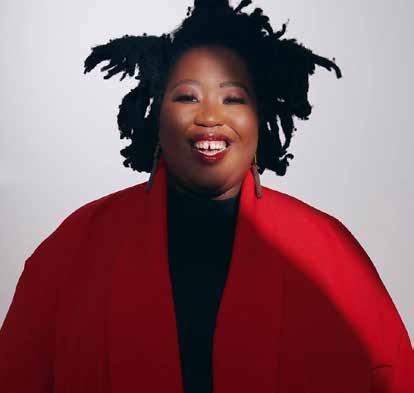
Portia Hlubi takes on the world of film directing with her production company, Milk and Honey TV.
By Mzwandile Mamaila
What is your background as an entrepreneur?
I’m an Executive Producer, Creative Director, and passionate storyteller. I started film school but dropped out, then interned for two years and worked my way up. I was a Junior Commissioning Editor at MultiChoice and later freelanced on shows like Real Housewives (Joburg, Cape Town, Lagos) and Izingane Zesthembu. I now run Milk and Honey TV.
What kind of business do you run?
Milk and Honey TV is a production company focused on unscripted formats—lifestyle shows, CSI projects, and documentaries that reflect real life.
What do you enjoy most about your industry?
Transforming mindsets and changing lives through television.
What challenges have you faced?
Reality TV is raw and real. It’s hard watching how it affects people. Budget constraints also remain a challenge, but we learn every day.
How many people have you employed?
Over 100 across various productions.
What keeps you going?
Empowering and healing through storytelling.
Advice for aspiring entrepreneurs?
It’s tough, but never give up. The dream is worth it—especially when you see your work on national TV.
What’s your end goal?
Running multiple shows to create jobs and continue making an impact.
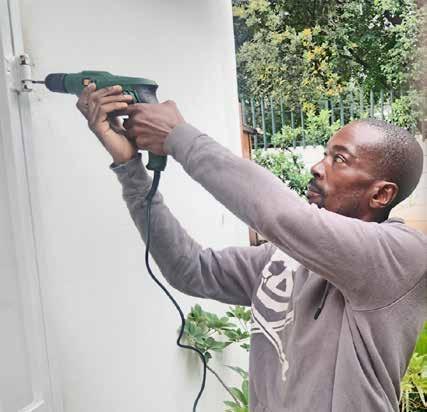
By Thandiwe McCloy
Handy work is not for the faint-hearted! That’s why Soweto’s Muaki
Mbalati (41) uses his skills to keep homes in great shape. The aim is to change the way young children view literature and language and encourage reading culture.
Why did you open your own company?
I’ve been a handyman since 2009. In 2021, I started Fumba Sons General Trading to share my services and create jobs.
What services do you offer?
We do general maintenance—fixing doors, locks, windows, welding, painting, roofing, tiling, and carpentry. We also do garden design, lawnmower repairs, pool construction, and home remodeling—even turning single-storey homes into double-storey ones.
What do you enjoy most about your work?
Seeing clients happy after a job well done. We always go the extra mile so they remember us and refer others.
What challenges do you face?
Work isn’t always consistent, which limits our advertising budget.
Why this career?
I saw a gap in the market and wanted to fill it. Helping people with home maintenance is rewarding and always in demand.
Most memorable project?
Fixing a house for kids and their grandmother for free. They were overjoyed! We also installed a glass window at Lenasia South Clinic before COVID made it standard.
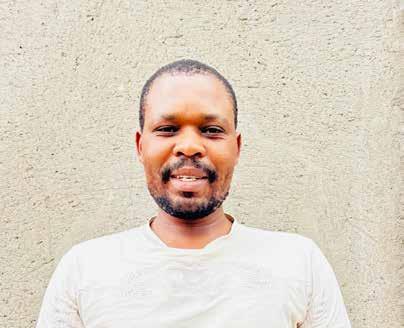
By Moeketsi Mogale
Eddie Monareng, affectionately known as Mr. Kilowatt, is a 35-year-old entrepreneur from Bushbuckridge who turned his early hustle into a growing property venture. His story is one of resilience, passion, and long-term vision. Selling sweets in school and running a tuck shop was just a stepping stone to a property business for young Eddie Monareng.
How did your business journey begin?
It started in high school. While other kids were enjoying their breaks, I was walking around selling snacks. After school, I did various piece jobs and used the money I saved to open Mr. Kilowatt Tuck Shop.
What were some of the major challenges you faced?
When foreign nationals started dominating the local retail market, many customers shifted their support due to pricing. Some South African shop owners gave up—I didn’t. Even when business was slow, I stayed patient and focused.
How did you manage to stay afloat?
I had built strong relationships with my customers. That trust and loyalty made a huge difference. I remained consistent and committed to my goals.
What are you working on now?
I’ve constructed five rental rooms. Some are already occupied—one is a barbershop and the other a beauty spa. I want to build more and grow my property portfolio.
Why move into property?
I’ve always dreamed of owning property. It took about 3–4 years of saving from the tuck shop to fund the project. Seeing that dream come true is a blessing.
What’s your vision?
T o grow as a businessman and help others do the same by creating space for entrepreneurs to thrive.

BEE ADVISORY, TRAINING AND STRATEGY DEVELOPMENT ADVISORY
STRUCTURING AND IMPLEMENTION OF BEE TRANSACTIONS
BEE EXECUTIVE SEARCH
Transcend delivers BEE solutions that include a bespoke, three-pronged approachAdvisory, Capital and Talent - working together for true transformation. In this way, we find sustainable ways for businesses and people to reach their full potential; accelerate economic growth; and contribute meaningfully to South African societal and professional equality.

by
Please contact info@transcend.co.za or call us on (011) 442 2433 for more information.